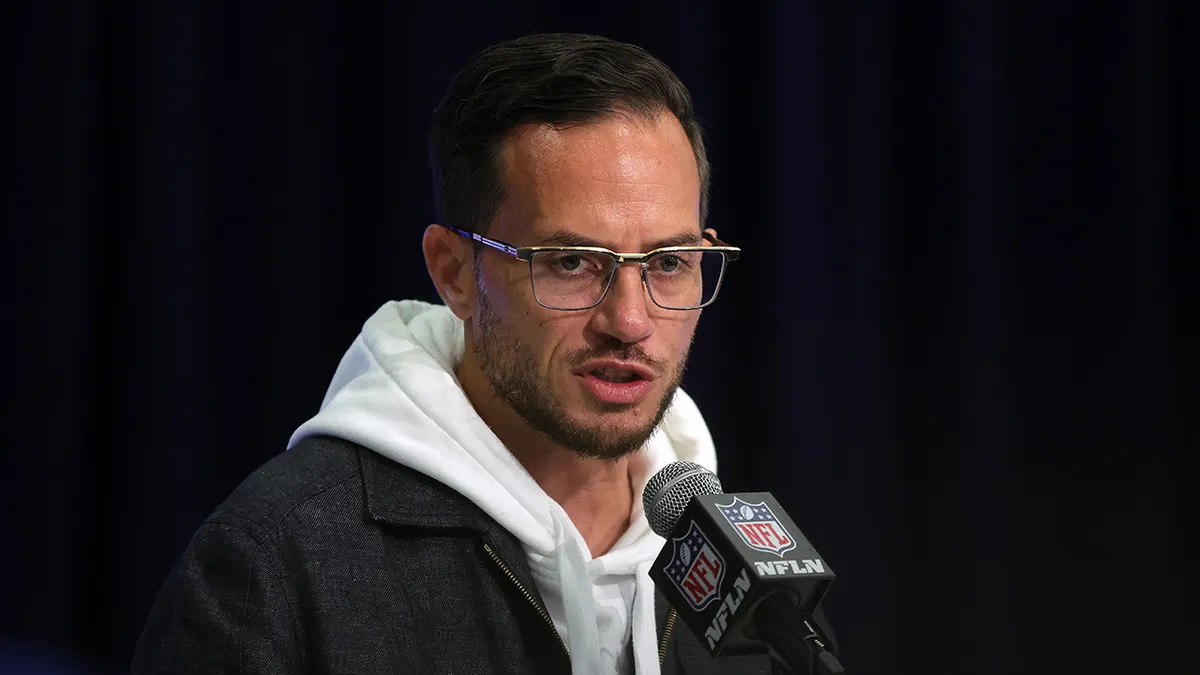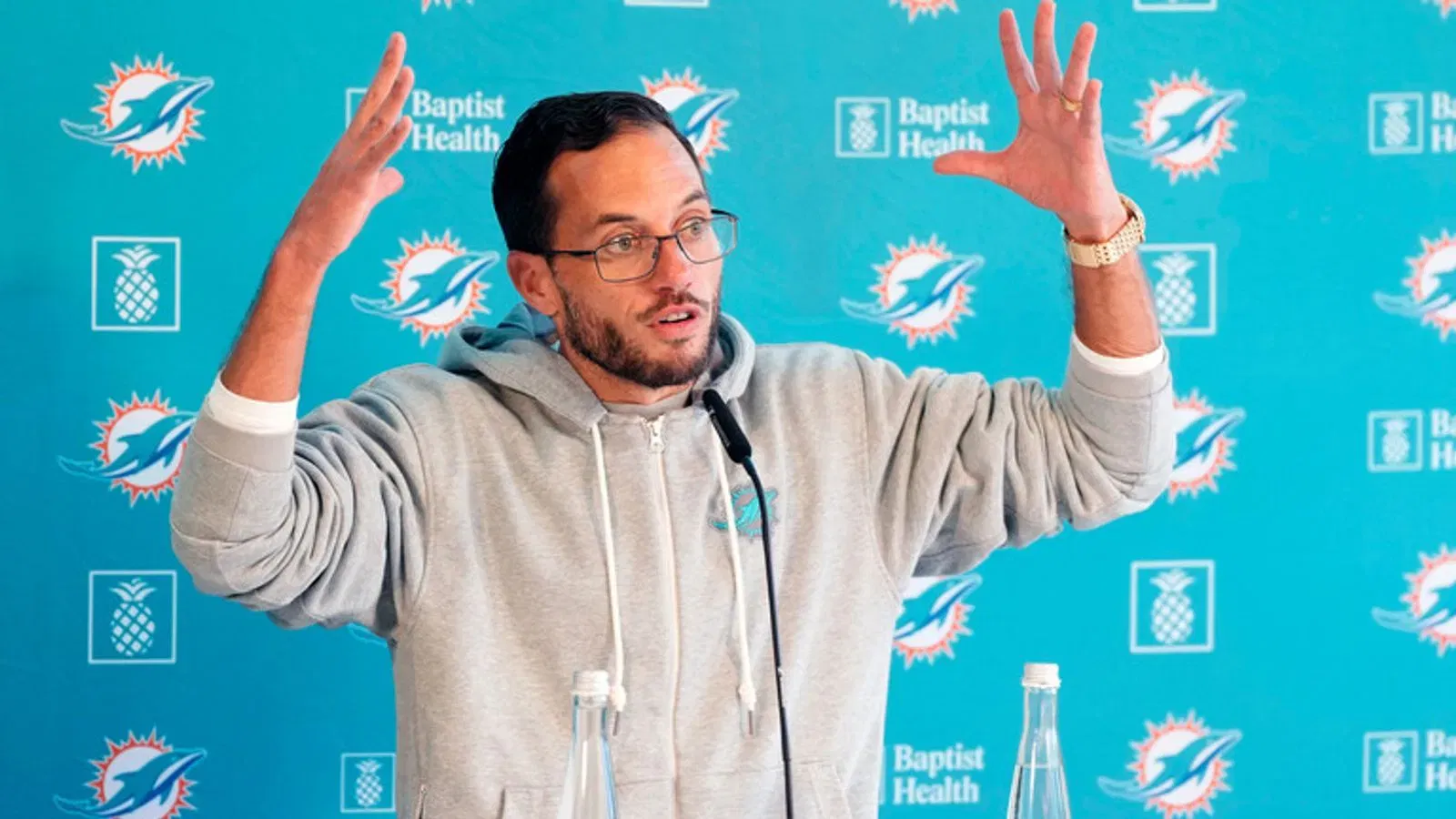This week, the spotlight turns to the Kansas City Chiefs following remarks made by their kicker, Harrison Butker, which sparked a polarizing discussion on the implications of athletes expressing political views. Chiefs coach Andy Reid is set to address the media, likely tackling the brewing storm surrounding Butker’s comments.
The controversy stretches beyond mere commentary, illustrating the delicate balance athletes must maintain in the public eye. On one side, there’s a vociferous call for Butker’s dismissal, while on the other, a robust defense against what some deem an overreach of ‘cancel culture.’

Mike McDaniel’s Philosophical Approach to Political Discourse
Amidst this backdrop, Miami Dolphins coach Mike McDaniel offered his perspective, shedding light on how he navigates political discussions within his team. When queried about the Butker situation, McDaniel emphasized the importance of awareness and belief in one’s statements.
“I think you do have to open the eyes of the players to their platform if they’re new to the situation,” McDaniel articulated. His approach is not just about censorship but fostering a deeper understanding among players about the longevity and impact of their public declarations.

“I emphasize that whatever you’re going to say, you better believe it, “McDaniel stressed, highlighting the permanence of words in the digital age. This advice resonates not just within sports but as a universal maxim applicable to anyone with a public platform.
Harrison Butker Broader Cultural Commentary
Interestingly, the broader discussion around Butker’s remarks was further amplified by prominent figures like Jon Stewart. Earlier this week, Stewart provided an incisive take on the situation, cutting through the “performative nonsense” that often clouds political discourse today.
His insights underscore the need for genuine, well-considered viewpoints that advance meaningful conversations rather than mere soundbites.

Kansas City Chiefs Lesson in Authenticity and Responsibility
As the sports world continues to grapple with the complexities of personal expression versus public accountability, McDaniel’s advice offers a beacon for navigating these tumultuous waters.
His call for authenticity—”you just try to educate people to understand the consequences of whatever they do”—serves as a crucial reminder for athletes and public figures alike.

In essence, whether it’s in the locker room or on the global stage, the integrity of one’s words plays a pivotal role in shaping their legacy. The unfolding narrative around Harrison Butker and the Chiefs will undoubtedly add another chapter to the ongoing dialogue about freedom of expression and its ramifications in the modern era.
As this situation develops, it will serve as a litmus test for the sports industry’s handling of personal beliefs within the professional realm.
https://youtu.be/wLLese1s









